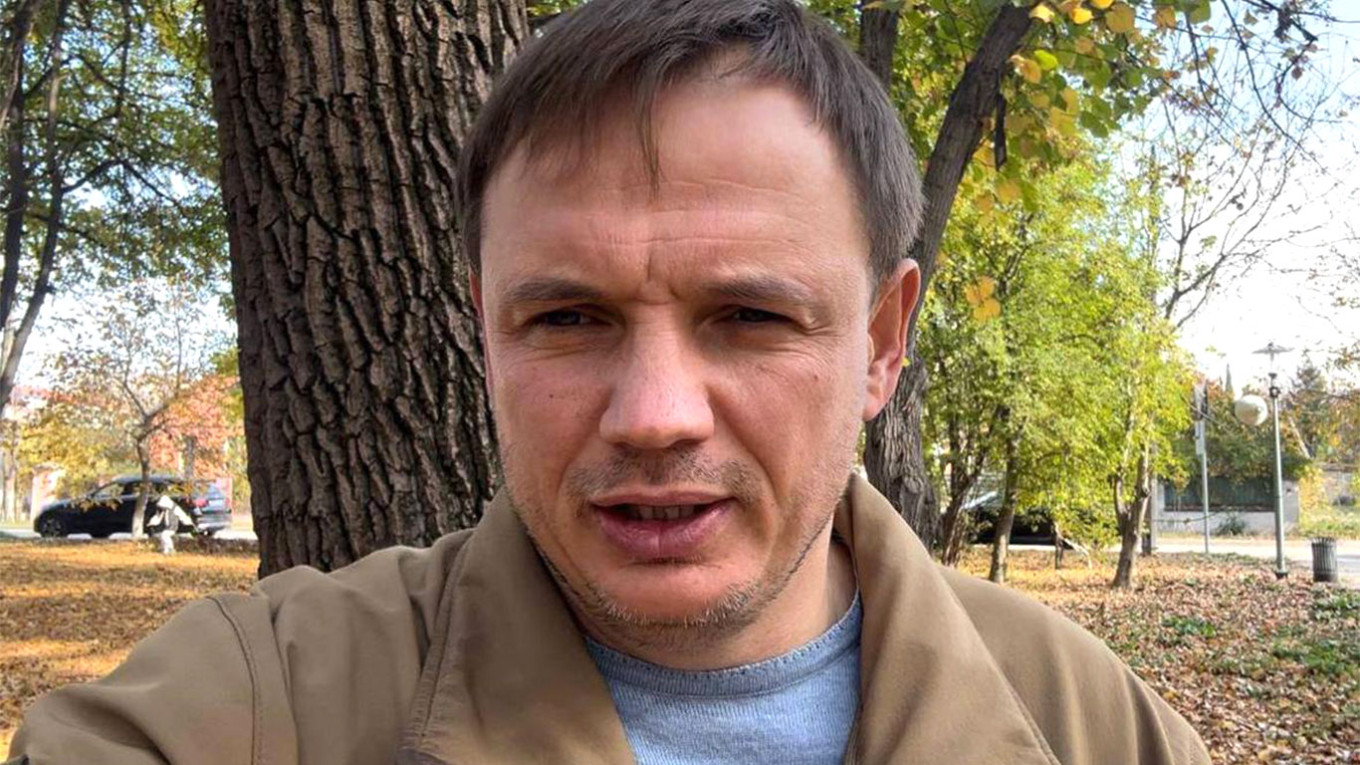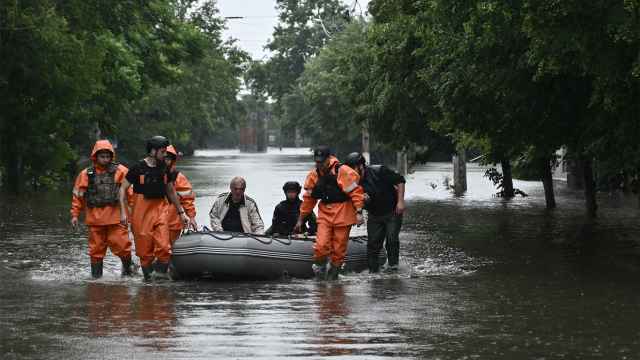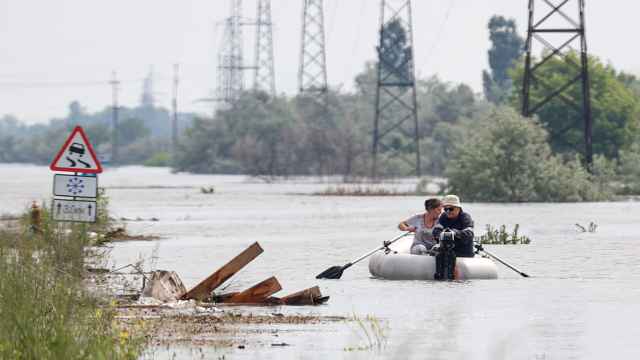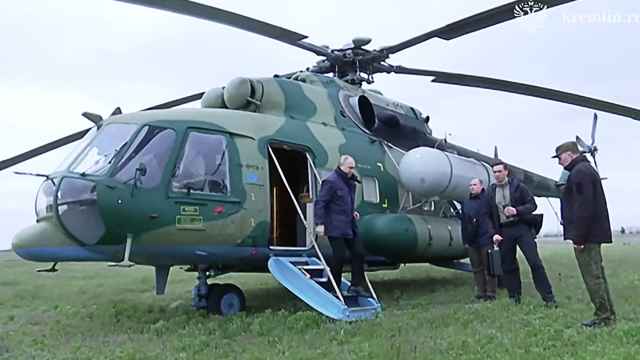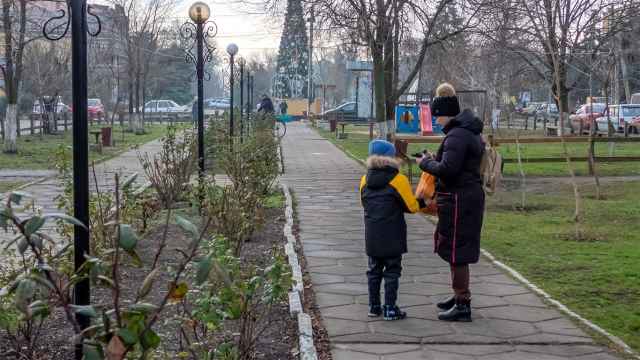Updates with reaction and details.
Kirill Stremousov, the vocal deputy head of the Moscow-installed administration in the occupied Kherson region of Ukraine was killed Wednesday in an apparent car accident, according to local officials.
Stremousov, known for his strongly anti-Ukrainian rhetoric, died near the town of Henichesk, Russian pro-war blogger Semyon Pegov wrote on Telegram.
"Kirill was one of the brightest, he was able to speak and deliver to people the truth about what is happening in the Kherson region," the Russian-appointed head of Kherson, Vladimir Saldo, said in a video posted on his Telegram channel.
The most senior Russian-appointed official in occupied Ukraine to die since the start of the invasion, Stemousov, 45, had been sanctioned by both the U.S. and the European Union.
His death comes as Ukrainian forces press forward with an offensive on the Russian-held city of Kherson, from which Russia has evacuated thousands of civilians in recent weeks.
Russian Defense Minister Sergei Shoigu on Wednesday ordered the retreat of Russian forces from Kherson and the entire right bank of the Dnipro River to defensive lines on the left bank.
Independent media outlet Meduza reported earlier Wednesday that Stremousov was one of a group of officials that the Kremlin had ordered should be quoted less frequently on state-run media outlets.
Few details about the accident were immediately available, but there have been a series of assassinations and attempted killings of Russian-appointed officials in occupied Ukraine since the start of Russia’s invasion in February.
Stemousov’s boss, Saldo, 66, a former Kherson mayor and local businessman, was transferred in August to a Moscow hospital after reportedly eating a meal prepared by a new cook. Russia’s Defense Ministry said at the time he may have ingested a nerve agent.
While some of these killings are believed to have been carried out by partisans and the Ukrainian security services, experts have suggested that others could be the result of local political and economic disputes.
A father of five, Stemousov provided regular updates about the military situation in and around Kherson, which was until Wednesday the only remaining regional capital in Ukraine still under Moscow’s control.
In a final Telegram post on Wednesday, Stremousov stated that the Ukrainian army was attacking in "all directions" in the Kherson region.
His prolific videos, interviews and posts on his Telegram channel — where he has over 120,000 subscribers — meant he was perhaps the most publicly recognizable face of the administrations installed by Russia in occupied Ukraine.
"The demise of Kirill Stremousov is a huge blow to Russia's occupation regime. The guy was odious, but a talented communicator," tweeted Nikolaus von Twickel, a political analyst focusing on eastern Ukraine.
Stremousov enjoyed a degree of notoriety in Kherson even before the war started, and faced a media backlash in 2017 after he filmed himself spinning his young daughter around his head by her legs. Two years later he was accused of attacking a local newspaper office with tear gas.
Stremousov ran unsuccessfully for the post of Kherson mayor and as a candidate in Ukraine’s parliamentary elections before the Russian invasion, while during the coronavirus pandemic he became a prominent anti-vaxxer.
Stremousov was appointed the deputy head of the pro-Kremlin Kherson administration in April following Russia’s partial occupation of the region the previous month.
A Message from The Moscow Times:
Dear readers,
We are facing unprecedented challenges. Russia's Prosecutor General's Office has designated The Moscow Times as an "undesirable" organization, criminalizing our work and putting our staff at risk of prosecution. This follows our earlier unjust labeling as a "foreign agent."
These actions are direct attempts to silence independent journalism in Russia. The authorities claim our work "discredits the decisions of the Russian leadership." We see things differently: we strive to provide accurate, unbiased reporting on Russia.
We, the journalists of The Moscow Times, refuse to be silenced. But to continue our work, we need your help.
Your support, no matter how small, makes a world of difference. If you can, please support us monthly starting from just $2. It's quick to set up, and every contribution makes a significant impact.
By supporting The Moscow Times, you're defending open, independent journalism in the face of repression. Thank you for standing with us.
Remind me later.



